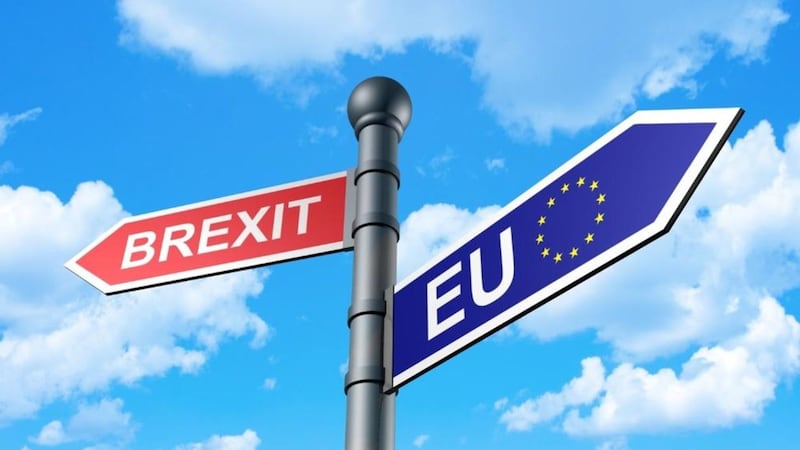For nationalist Ireland, it appears that Brexit now means "Brits Out".
A mere 20 years after the IRA ceasefire heralded a new era of "Brits In, after all", the leaders of the main nationalist parties are seeking to dilute British influence in the north.
They argue that British rule, as indicated by Westminster's attitude towards the EU, is not in the best interests of Ireland, north and south.
After 800 years of political opposition to British rule (and then agreeing to it) nationalism has once more been redefined, this time as a largely economic concept. Ireland, it argues, should be a single economic unit within the EU.
Although it is not a political argument, it has political consequences by suggesting, at the very least, reduced control over the north from London. In turn, this implies some form of economic unity with Dublin.
Where does that leave unionism and how does it all fit in with the Good Friday Agreement? Or are the nationalist parties merely engaged in competitive posturing, by waging a phoney war on the auld enemy?
All nationalist parties are agreed on 'Brits Out" to some extent.
Sinn Féin does not trust the British Secretary of State to represent the north's best interests. This would appear to suggest that, in Wolfe Tone's words, we should break the connection with England (but no-one has gone that far in front of the DUP).
In response, Fianna Fáil leader Micheál Martin went to Tone's grave last week and in a de Valera-style speech, he pledged to "stand by the people of Northern Ireland and never fail to speak up for their interests" (De Valera, of course, would never have said "Northern Ireland").
Enda Kenny had previously upped the poker stakes by arguing that Irish unity must be considered "as a valid democratic option" in Britain's negotiations with the EU. Although speaking in the more hallowed confines of Oxford, his speech sounded remarkably close to "Brits Out - with consent, of course".
That just left the SDLP, which suggested a more traditional approach: "We should be kicking the door in of the British Prime Minister" (Sadly, Sinn Féin did not take the opportunity to condemn the SDLP's attitude to violence).
Even former leaders have joined the chorus. Fianna Fáil's Bertie Ahern says he does not know of a single person in Ireland who welcomes Brexit (he might like to get out more) and Fine Gael's John Bruton worries that Brexit might lead to more smuggling (Mr Bruton might not know it, but there are some who will not regard that as a bad thing).
All these opinions will presumably fill the air in Dublin next Wednesday during Enda Kenny's all-Ireland Civic Dialogue.
Like Daniel O'Connell's monster rally on the Hill of Tara in 1843, Ireland will shake its fist at Britain.
In return the British will presumably point out the bit in the Good Friday Agreement about the north remaining part of the UK until a six county majority decides otherwise (Just as you hope that the British would break an agreement, they stick to it. Typical).
The fist shaking will focus on the economy and trade, the peace process, the common travel area and the future of the EU.
It will presumably generate some wonderfully anti-British rhetoric (Micheal Martin has already called some British cabinet ministers "cavalier and grossly unprofessional". Now, that's tough talking).
This will probably be followed by the formation of lots of sub-committees, working parties, ad hoc groups and, if we are very unlucky, think tanks.
By shaking its fist at Britain, nationalism is also shaking its fist at unionism, which makes life all rather schizophrenic for Sinn Féin in government and the SDLP in opposition.
The irony of it all is that while Irish nationalism is right to reject the right wing ideology of the British government, it insists, in Micheál Martin's words, on standing by the European Union.
This is the same union in which 80 million people live in poverty, 21 million are unemployed and over four million are homeless (not counting the one million refugees, who are still denied the free movement of people).
If there is a difference between British right wing politicians and European right wing politicians, perhaps our nationalist leaders would explain it, as part of the Civic Dialogue.
So watch on Wednesday, as nationalists back away from "Brits back in again" towards "Brits out" (by the Dáil parties) and "Brits half out" (by Stormont's nationalists).
Oh dear, it can be so hard to make up your mind about these things.








